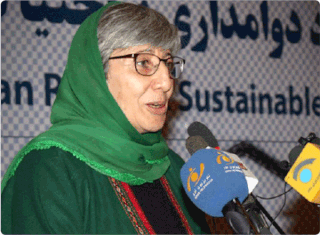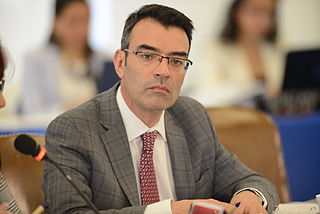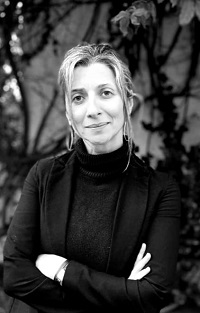Related Research Articles

The treatment of women by the Taliban refers to actions and policies by two distinct Taliban regimes in Afghanistan which are either specific or highly commented upon, mostly due to discrimination, since they first took control in 1996. During their first rule of Afghanistan, the Taliban were notorious internationally for their misogyny and violence against women. In 1996, women were mandated to wear the burqa at all times in public. In a systematic segregation sometimes referred to as gender apartheid, women were not allowed to work, nor were they allowed to be educated after the age of eight. Women seeking an education were forced to attend underground schools, where they and their teachers risked execution if caught. They were not allowed to be treated by male doctors unless accompanied by a male chaperone, which led to illnesses remaining untreated. They faced public flogging and execution for violations of the Taliban's laws.

Yale Law School (YLS) is the law school of Yale University, a private research university in New Haven, Connecticut. Established in 1824, it has been ranked the number one law school in the country by U.S. News & World Report every year since the magazine started publishing law school rankings. The 2020–21 acceptance rate was 4%, the lowest of any law school in the United States. Its yield rate of 87% is also consistently the highest of any law school in the United States. The school’s small size and prestige have made its admissions process the most selective of any law school in the United States.

Dr. Massouda Jalal is the first woman in the history of Afghanistan who ran for the Office of the President of Afghanistan in 2002, 2004, and again in 2019. Dr. Jalal emerged as a leading voice of Afghan women after her election as the Representative to the 2002 Loya Jirga as she became one of the frontrunners for the position of Interim President of Afghanistan, opposite to ex-president Hamid Karzai.

The Northern Alliance, officially known as the United Islamic National Front for the Salvation of Afghanistan, was a military alliance of groups that operated between early 1992 and 2001 following the dissolution of the Soviet Union. At that time, many non-Pashtun Northerners originally with the Republic of Afghanistan led by Mohammad Najibullah became disaffected with Pashtun Khalqist Afghan Army officers holding control over non-Pashtun militias in the North. Defectors such as Rashid Dostum and Abdul Momim allied with Ahmad Shah Massoud and Ali Mazari forming the Northern Alliance. The alliance's capture of Mazar-i-Sharif and more importantly the supplies kept there crippled the Afghan military and began the end of Najibullah's government. Following the collapse of Najibullah's government the Alliance would fall with a Second Civil War breaking out however following the Islamic Emirate of Afghanistan's (Taliban) takeover of Kabul, The United Front was reassembled.
Human rights in Afghanistan under the Taliban regime are severely restricted and considered among the worst in the world. Women's rights and freedom are severely restricted, as they are banned from most public spaces and employment. Afghanistan is the only country in the world to ban education for women over the age of eleven. Taliban's policies towards women are usually termed as gender apartheid. Minority groups such as Hazaras face persecution and eviction from their lands. Authorities have used physical violence, raids, arbitrary arrests and detention, torture, enforced disappearances of activists and political opponents.

Sima Samar is a Hazara human rights advocate, activist and medical doctor within national and international forums, who served as Minister of Women's Affairs of Afghanistan from December 2001 to 2003. She is the former Chairperson of the Afghan Independent Human Rights Commission (AIHRC) and, from 2005 to 2009, United Nations Special Rapporteur on the situation of human rights in Sudan. In 2012, she was awarded the Right Livelihood Award for "her longstanding and courageous dedication to human rights, especially the rights of women, in one of the most complex and dangerous regions in the world."

Sakena Yacoobi is an Afghani activist known for her work for promoting access to education for women and children. She is the founder and executive director of the women-led NGO Afghan Institute of Learning. For her work, Yacoobi has received international recognition, including the 2013 Opus Prize, the 2015 WISE Prize, the 2016 Harold W. McGraw Prize in Education, and an honorary degree from Princeton University.
Miriam Estrada Castillo is a lawyer, and was born in Guayaquil, Ecuador. She is the daughter of Pablo Estrada Valle, one of the founders of CFP, which was one of the most important political parties of Ecuador in the fifties. She graduated from the American School of Guayaquil with honours and studied Law in the Faculty of Law and Social and Political Sciences of the University of Guayaquil, Ecuador, getting her academic degrees as a Doctor in Jurisprudence and a bachelor's in social and political sciences as a Valedictorian. Her PhD thesis: "Revolution, Art, and Human Rights" was considered a contribution for the legal culture of Ecuador, receiving the honour of being published by the University of Guayaquil. She was awarded, amongst 1200 other graduates, with the "University of Guayaquil" Award, for obtaining the highest scores during her student life and for the contributions she made as an academic. She was married to the founder of the Choral Movement of Ecuador, Maestro Enrique Gil Calderon, with whom she had her three children, Abogado Alfredo Antonio Gil Estrada, Maestro Fernando Gil Estrada and Magister and International Consultant, Alba Gil Estrada.

Women's rights in Afghanistan are severely restricted by the Taliban. In 2023, the United Nations termed Afghanistan as the world's most repressive country for women. Since the US troops withdrawal from Afghanistan in 2021, the Taliban gradually imposed restrictions on women's freedom of movement, education, and employment. Women are banned from studying in secondary schools and universities, making Afghanistan the only country to prohibit females from studying beyond the sixth grade. Women are not allowed in parks, gyms, or beauty salons. They are forbidden from going outside for a walk or exercise, from speaking or showing any part of their face or body outside the home, or even from singing or reading from within their own homes if they could be heard by strangers outside. In extreme cases, women have reportedly been subjected to gang-rape and torture in Taliban prisons.

James (Jim) Cavallaro is a professor of law and the co-founder and executive director of the University Network for Human Rights. He teaches human rights at Wesleyan University, where he is a director of the Minor in Human Rights Advocacy, as well as the Wesleyan ACTS for Human Rights program. In addition to Wesleyan, Cavallaro frequently teaches at Yale Law School, and the University of California at Los Angeles (UCLA). He also teaches at Columbia Law School and the University of California Berkeley. Prior to launching the University Network, Cavallaro founded the International Human Rights and Conflict Resolution Clinic at the Mills Legal Clinic at Stanford Law School, United States. In 2018, Cavallaro and Ruhan Nagra founded the University Network for Human Rights, an organization that engages undergraduates and graduate students and their universities in human rights work in the United States and around the world. Cavallaro served as a commissioner (2014-2017) and President (2016-2017) of the Inter-American Commission on Human Rights. Cavallaro received his BA from Harvard University and his JD from University of California at Berkeley School of Law, where he served on the California Law Review and graduated with Order of the Coif honors. He also holds a doctorate in human rights and development from Pablo de Olavide University, Seville, Spain.

David Kaye is an American politician who served as the United Nations Special Rapporteur on the promotion and protection of the right to freedom of opinion and expression between August 2014 and July 2020. He was succeeded by Irene Khan. Kaye is clinical professor of law at the University of California, Irvine on public international law, international humanitarian law human rights and international criminal justice. He is co-director of the UCI Fair Elections and Free Speech Center working at the intersection of technology, freedom of speech and democratic deliberation. He is also the independent board chair of the Global Network Initiative.

International sanctions against Afghanistan were implemented by the United Nations in November 1999. The sanctions were initially aimed at terrorists, Osama bin Laden and members of Al-Qaeda. The United States, the United Kingdom and the European Union also impose sanctions on Afghanistan.

Roya Rahmani is an Afghan diplomat who served as Afghanistan's first female ambassador to the United States and non-resident ambassador to Mexico, Argentina, Colombia, and the Dominican Republic from December 2018 to July 2021. She is currently the Chair of the international advisory company in development finance — Delphos International LTD. She is also a distinguished fellow at the Georgetown Institute for Women, Peace, and Security, a senior advisor at the Atlantic Council's South Asia Center, and a senior fellow for international security at the New America Foundation. From 2016 to 2018, she served as Afghanistan's first female ambassador to Indonesia, first ever ambassador to the Association of Southeast Asian Nations, and non-resident ambassador to Singapore.
E. Tendayi Achiume is a Professor of Law and former Faculty Director of the Promise Institute for Human Rights at the University of California, Los Angeles. She served as the United Nations special rapporteur on Racism, Racial Discrimination, Xenophobia and Related Intolerance from her appointment in September 2017 until November 2022. She was the first woman appointed to this position since its creation in 1993.

Francesca P. Albanese is an Italian international lawyer and academic. On 1 May 2022, she was appointed United Nations (UN) Special Rapporteur on the occupied Palestinian territories for a three-year term. She is the first woman to hold the position.

Elizabeth Silvia Salmón Gárate is a Peruvian legal scholar and the current UN Special Rapporteur on the situation of human rights in the Democratic People's Republic of Korea. She was appointed in August 2022 by the OHCHR, replacing Tomás Ojea Quintana.

Margaret Lockwood Satterthwaite is the American-born special rapporteur on the independence of judges and lawyers for the United Nations. She has been involved in legal cases including those in Kiribati and the United Kingdom where the government was planning to overrule the judiciary.
Astrid Jovanna Puentes Riaño is a Colombian-born Mexican law professor. She has led the Interamerican Association for Environmental Defense (AIDA) to support the people who live in La Oroya, "one of the most polluted places on Earth". In 2024 she became the United Nations Special Rapporteur on the human right to a healthy environment.
Dorothy Estrada-Tanck is a Mexican academic who has worked in Spain. She has led the United Nations Working Group on discrimination against women and girls. She co-authored a report about the "gender apartheid" in Afghanistan which they considered a crime against humanity.
Nayera Kohistani is an Afghan women's rights activist. She lived through the first Taliban rule in her country. She was a protestor when they came to power again. She left the country in 2022 after being imprisoned and she is a prominent protestor against the "gender apartheid" and criminalisation of gender in Afghanistan.
References
- ↑ Application form to the UN
- ↑ "Claudia M. Flores | Yale Law School". law.yale.edu. 2024-02-26. Retrieved 2024-06-25.
- 1 2 3 "Policing Globally Fails Human Rights Standards, Claudia Flores Finds | Yale Law School". law.yale.edu. 2022-02-18. Retrieved 2024-06-25.
- 1 2 "The Conversation: Claudia Flores and the Case for Police Reform | Newcity". 2021-06-03. Retrieved 2024-06-25.
- ↑ "Current and former mandate holders". OHCHR. 1 May 2024. Retrieved 25 June 2024.
- ↑ "Dorothy Estrada-Tanck appointed Chair of United Nations Working Group". European University Institute. Retrieved 2024-06-26.
- ↑ "Claudia M. Flores | Yale Law School". law.yale.edu. 2024-02-26. Retrieved 2024-06-25.
- ↑ "States and companies must end arms transfers to Israel immediately or risk responsibility for human rights violations: UN experts". 20 June 2024. Retrieved 25 June 2024.
- ↑ "International community must not normalise Taliban rule in Afghanistan [EN/Dari/PS] - Afghanistan | ReliefWeb". reliefweb.int. 2024-08-14. Retrieved 2024-12-04.